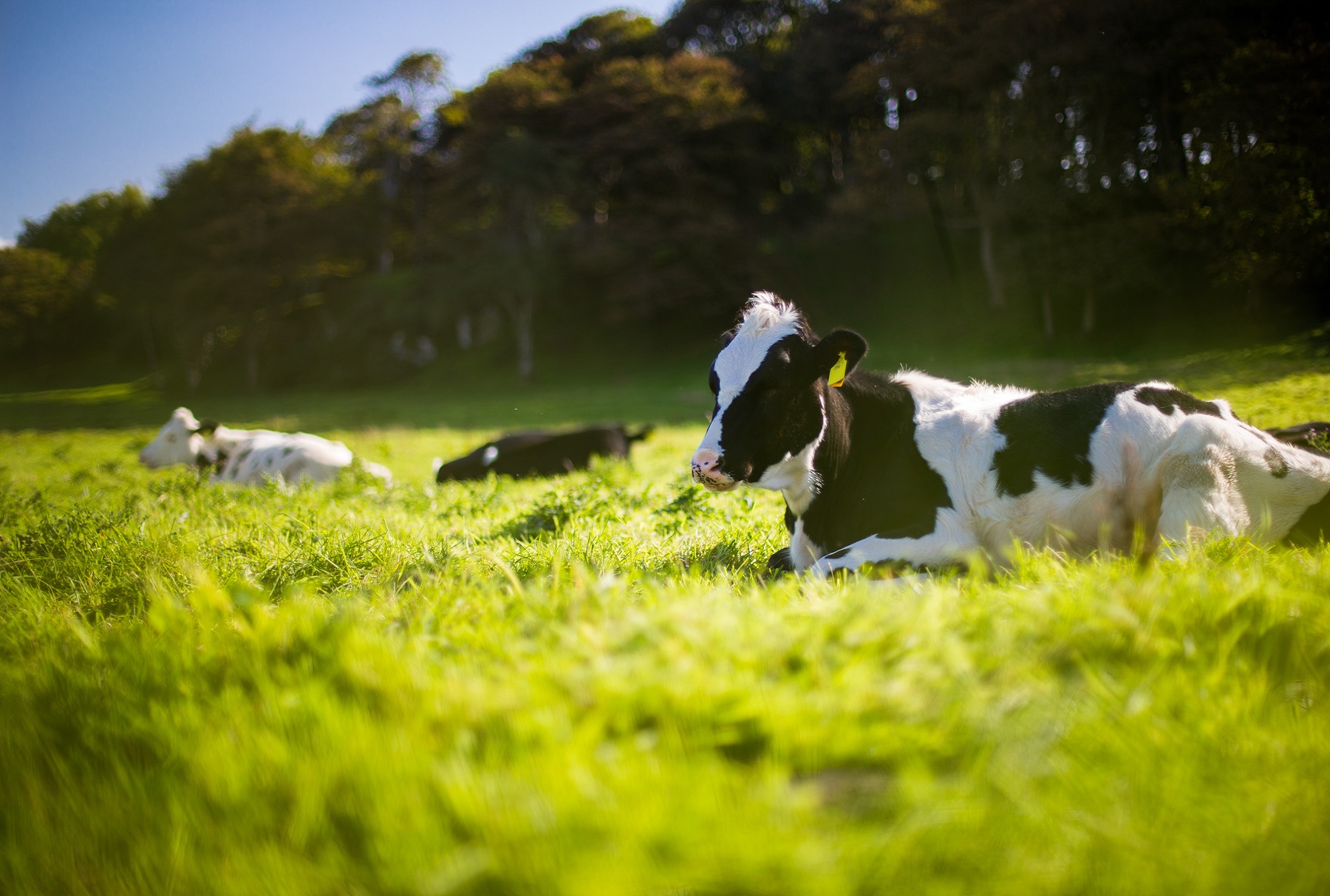Does living near cows make us happy? Town Moor Cattle are the focus of a new photographic publication
In Newcastle, cattle grazing on the city’s famous Town Moor is a familiar sight. In fact, the Freemen of the Newcastle have exercised their right to graze cattle on the land since before the Norman conquest.
2 August 2021
In Newcastle, cattle grazing on the city’s famous Town Moor is a familiar sight. In fact, the Freemen of the Newcastle have exercised their right to graze cattle on the land since before the Norman conquest.
Now a new photographic publication and film examines if living closer to livestock such as the Town Moor cattle can improve our quality of life.
Ruminations by artist Michele Allen features images of the cattle who live on the 1,000 acre site, surrounded by traffic and city life, and interviews with Newcastle residents.
“I’m interested in how farming and farming spaces are represented and finding ways to present them differently,” says Michele. “The Town Moor is a unique space, and people who live near it have a very intimate relationship with the cows that graze on there and have done for a long time.
“How does living so close to sheep and cows affect the way we see them? Does it have a positive impact on our own health and wellbeing? Does living near cows make us happy?”
Ruminations also features farmer Zowie Bell, who manages livestock in East Yorkshire.
Launching at the same time as Ruminations is FIELDS, a print tabloid newspaper and online stories, which examines the lives, stories and experiences of British sheep, cows and farmers from 1947 to the present day. It includes historical photography of farmers, livestock and farming communities from the North and East of England from the 1930s up to the 1970s – including images from the Town Moor Agricultural Show. Working with photographic, film and audio archives, academic and artist research, and interviews, FIELDS traces the personal and social histories of cows, sheep and farmers. It will invite readers to think about their lives lived together across different regions of the UK. https://stories.field-wt.co.uk
Dr Amy Proctor, who leads the FIELD project at Newcastle University said:
“Working with the artists in residence has provided us with an exciting opportunity to engage with and present several different elements of our research in new ways. We are looking forward to sharing Michele’s work with a wider audience and having conversations surrounding these at our upcoming events”
Ruminations and FIELDS were created as part of FIELD, a four year research project investigating livestock disease and how it is influenced by nature, science and society. The project is led by six University partners; the Universities of Newcastle, Edinburgh, Glasgow Hull, Leeds Trinity and Lincoln, working in partnership with Museum of English Rural Life (MWERL), and funded by the Wellcome Trust.
Michele Allen is one of three commissioned artists from the UK and Ireland to create work for the project that explores the unseen and overlooked lives of farmers, cows and sheep from across East Yorkshire, Lincolnshire, Newcastle upon Tyne and Northumberland.
Ruminations and Fields will be launched between 10am to 2pm on Sunday 8 August at Bike Garden mini market in Nuns Moor Park, Newcastle. Michele Allen will be there to discuss her work.
Further events are planned. The public are invited to Hexham Farmers Market, on Saturday 25 September and Newcastle’s Grainger Market on Saturday 16 October to meet artists and researchers working on the project, and to share their own stories and experiences.
On Tuesday 28 September Hexham Forum Cinema and Thursday 21 October at the Star & Shadow Cinema in Newcastle, there will be free film screenings of new artist and documentary films, a showreel of farming related archive films from the British Film Institute and and MERL film collections along with Q&A with artists and researchers.
Films will include Ruminations and a short documentary work from filmmaker Mark Jones about the life’s of two North Welsh cattle farmers Olwen and Geraint.
